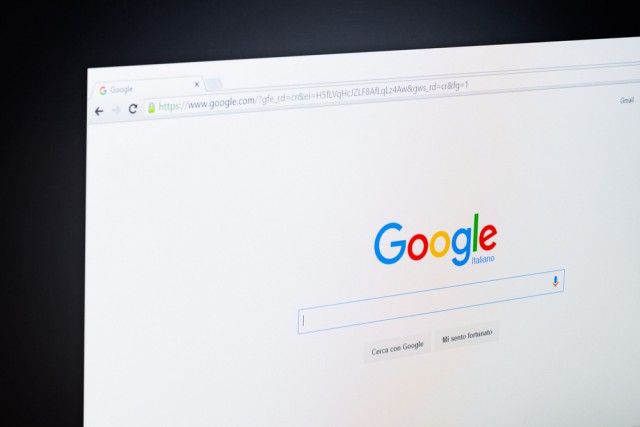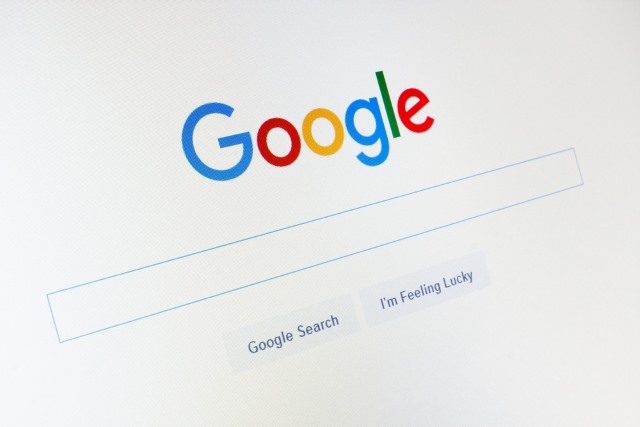
Google tweaks search algorithms to fight fake news and 'offensive' content
The fight against fake news continues, with Google announcing not only changes to search algorithms to help prevent false information from rising to the surface, but also new tools to allow users to report "unexpected, inaccurate or offensive" results.
While the algorithm tweaks should impact on general search results, the reporting tools have been designed for Google's Autocomplete predictions and Featured Snippets which have been problematic in recent months. Updated algorithms should help to ensure more authoritative pages receive greater prominence, while low-quality content is demoted.

Google will automatically translate local reviews into your language
Thanks to the internet, consumers are less likely to visit a gross restaurant or other bad location. You see, by reading online reviews, they can avoid these negative experiences. This is particularly helpful when travelling to a new city, as you may be unfamiliar with the area.
Unfortunately, when visiting somewhere that speaks a language that you do not understand, these reviews are useless on their own. To read them, you have to copy and paste them into a translation service, which can be an inconvenient chore. Thankfully, Google has come up with a solution for this dilemma. Starting today, the search giant will automatically translate local reviews into your language when you use its Maps or Search services. How cool is that?

Google Image Search gets fashion-conscious with 'style ideas' on Android and the web
You'd be forgiven for thinking that Google is entirely pre-occupied with fake news and the fact-checking thereof these days, but there are still rather more interesting changes and additions being made to search. The latest new feature is "style ideas" which makes its way to the web and Android today.
Google says that the aim of the feature is to help "boost your search style IQ" -- because, after all, "when it comes to fashion, it’s hard to know where to start." What this means in practice is that when Image Search is used to track down a particular product, such as shoes or a bag, Google will show off images with those items paired with different products or displayed in different situations.

Paid-for Google Site Search to be phased out and replaced by free, ad-supported version
Emails to customers reveal that Google plans to kill off Google Site Search this spring. While customers who have paid for the service will continue to have access to it, no new licenses or renewals will be sold after 1 April, 2017.
As reported by Fortune, customers will be migrated to Google's ad-supported Custom Search Engine once their license or search limit expire. The move illustrates Google's on-going and growing reliance on advertising income, and it's something that is unlikely to be well-received by web users who are already sick of being inundated with ads.

Anonymous search engine DuckDuckGo celebrates over 10 billion searches
A lot of people are more privacy aware than they have been in the past, and are wary of entrusting everything they search for to Google.
That’s where privacy-focused sites like DuckDuckGo come in. Its growth since it launched 8 years ago has been nothing short of staggering, with the number of searches skyrocketing since 2013, when Edward Snowden first revealed how the US government was spying on its people.

Now you can perform offline Google searches... sort of
There must have been times when you're in an area with no Wi-Fi and terrible phone reception. It's almost certainly when you find yourself in this situation that you think of something you want to look up. With no signal to perform a Google search, you may mentally log your query and pledge to run it later -- but of course you will forget.
Google has a solution. The latest version of the Google app heralds the arrival of pseudo offline searching, so you can perform searches with no signal, or if your phone is in airplane mode.

Nielsen: Top 10 smartphone apps of 2016 -- Facebook and Google dominate
When it comes to mobile operating systems, apps still reign supreme. To highlight which ones were most popular in 2016, Nielsen conducted a study of Android and iPhone smartphone users.
Not surprisingly, two major players in the mobile space -- Facebook and Google -- lead the pack.

What did people ask Quora about in 2016? Trump, Brexit and Pokémon for starters
We've already learned what people have been using Google to search for in 2016, and now it's the turn of Quora. The Q&A site has just published details of what its users have been asking throughout 2016, and while there are some obvious entries, there are also a few surprises.
Quora's "Year in Questions" stats show that Brexit ("how does Brexit affect Europe?") and the US election ("How did Donald Trump win the 2016 US Presidential Election?") were both subjects that "captivated" the US. While topics such as Pokémon had hotspots of popularity through the year, Donald Trump sparked the most discussion. Interestingly, people also turned to Quora for relationship advice.

"Does Alaska have polar bears?" and other popular Google search queries in 2016
Google search's autocomplete function is an interesting feature; as well as helping to save time, it can also be very revealing of the zeitgeist. The feature has been in the headlines recently for reasons that probably didn’t make Google particularly happy, but autocomplete can also be the source of some amusement.
Marketing company WebpageFX has come up with an entertaining lookback at the most popular searches in the US, broken down by state. This fairly simple piece of research shows that people are asking questions such as "does Idaho exist?", "does Florida have zika?", and "does Arizona have pee in it?" (yep... we're lost too...*). Some searches are serious, some silly, some weird. Here's how they break down.

Google goes green -- 100 percent renewable energy usage in 2017 to combat climate change
Big companies like to be seen to be doing their bit, particularly when it comes to the environment, and tech companies are no different. Google -- being one of the biggest companies in the world -- has huge energy requirements, and it's looking to help address the problem of climate change.
The company has already done a lot to increase the energy efficiency of its data centers, but in 2017 it is going further. It says that it will be fully powered by renewable energy from next year, and that includes both data centers and offices.

Google has a moral obligation to hide offensive autocomplete search suggestions
If a query becomes popular enough on Google, it will show up as an autocomplete suggestion after you type the first words. For instance, if you write "what's my" one of the things that Google will propose is "what's my IP". That's to help you find what you are looking for more quickly. But there's a dark side to it: if left alone, it can expose you to some pretty offensive searches.
Case in point is "are Jews evil", which my colleague Mark Wilson wrote about earlier. Yes, a high enough number of users searched for those exact terms that it showed up as an autocomplete suggestion -- until Google decided to do something about it. Mark strongly believes that's wrong, but his arguments are childish. Why? Well, because if Google does nothing, your young children can also see "how to rape a woman" or "how to murder your mother" as autocomplete suggestions after writing "how to" in Google, just because some people wanted to make those queries popular. Think about it, and I mean really think about it, and let me know if that's something you would like to see happen. Could you live with it if, for instance, your easily influenced six year old stabs someone, as a result? Scary thought, isn't it?

Google is wrong, wrong, wrong to remove 'are Jews evil' from search autocomplete suggestions
Over the last few days there has been much wailing and gnashing of teeth over the discovery that if you type "are Jews" into Google, one of the suggested searches is "are Jews evil". The same is true for the search "are women" and "are Muslims" ("bad" being the suggestion in the third instance). Or at least it was the case.
Following cries of anti-Semitism, the search giant folded like a moist tissue and remove the "offensive" suggestion. Clearly Google is able to do -- by and large -- whatever the hell it wants... but that doesn’t make it right. And the removal of the "are Jews evil" suggestion is not only wrong, but also worrying and dangerous. If you disagree you can let off steam in the comments and cast a vote in the poll, but hear me out first.

SEO alert: Google search to rank sites according to their mobile versions
Having recently said that it will show different search results to mobile and desktop users, Google now has another search related announcement. Reacting to the fact that most searches are conducted from mobile devices, search results will be ranked according to sites' mobile content.
Google says that it has "begun experiments to make [its] index mobile-first", and it's a move that essentially says that mobile searchers are more important than the rest. In light of the recent splitting of mobile and desktop indexing, the announcement is hardly a bolt out of the blue, but it's still something that many site owners will need to take action about.

Russia fines Google over breaking antitrust rules with Android
Google has been fined 438 million rubles ($6.75 million) by the Russian antitrust authority for abusing its market position following a complaint by Yandex, Russia’s biggest search engine.
Google has been found guilty of forcing Android smartphone makers to install its search engine on their devices, which has been seen to breach "protecting competition" laws.

Google previews faster search results with Accelerated Mobile Pages
Google's AMP (Accelerated Mobile Pages) project aims to speed up the web for mobile users. The company has just announced that the technology is being previewed in mobile search results to help searchers get to the content they want faster.
As the name suggests, this is something that is only rolling out to the mobile side of Google search, and it works in a similar way to Facebook's Instant Articles. As AMP is still in fairy early stages of development, the technology is not yet perfect and site support is a little limited, but it all bodes well and the preview period gives the likes of you and I the chance to see what all the fuss is about.
